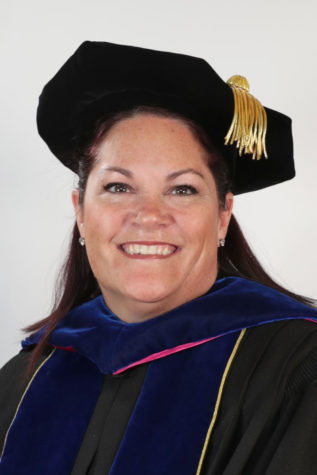’Hurst how to: Studying abroad
Managing your finances and learning about the cultural differences of the country you are visiting are some of the ways that can ease your travel abroad experience.
February 24, 2016
Mercyhurst University has many study abroad programs for students. Whether in the Americas, Europe, or Asia, students can find a dream destination to pursue an education while exploring new cultures.
Before the trip, there are some pre-departure necessities, such as applying early for your passport, visiting your doctor and, if necessary, applying for a visas. Now, you feel like you are ready, but are you sure? Let’s go over the checklist below to make sure that nothing is missing.
Manage your finances
When you study abroad, you have to make sure your finances are taken care of to avoid getting caught in a jam. Even though in many cases, you have already paid for housing and meal plan, but besides that, there is a long list of knick-knacks that might be worth half or all of your budget.
First, make sure your credit card company and bank know that you plan to be abroad. They will want to know where you’re going and when you will be there so they can keep an eye out for any bizarre charges. You should also make sure your credit cards are accepted internationally. Next, estimate a budget to save up enough to fund your study abroad experience and exchange the currency. Remember, the dollar is appreciated more than most of the currencies out there.
Refresh your language
Only six countries in the world use English as the main language. Of course, many countries use English on a daily basis, but knowing the most basic phrases of the local language can make a difference in overcoming those first few days of adjustment. Enroll in classes, ask fluent friends for help or purchase a pocket dictionary to read on your daily commute. Every little bit helps!
Communication is key
You may travel with a group of friends or all by yourself. However, in any case, always keep the contact information of the school’s administrative counselors in your pocket.
Imagine this: You are in a new country where people use different language, and the airline lost your luggages in the transit airport. Hence, you should know someone from the school who can help you in such unexpected situations.
Also, how will you regale everyone back home with the wonderful stories about the amazing time you are having? Most students rely on two options for communicating with friends and family: cell phone or laptop. Thanks to the wide spread of social media, contacting home is never easier. However, in some countries like China, Facebook and Twitter are banned. That’s why you have to know the next step.
Understand your destination’s local customs, culture, and people
Back to the China scenario. What if you have prepared everything you need except the knowledge about the country and now you cannot communicate with anyone back home! Take some time to research to better familiarize yourself with your study abroad country.
By having brief knowledge of your soon-to-be home’s culture, history, geography, economy, government, etc, your study abroad experience will be enriched and your time spent more meaningful. Talk to others who have been there and seek opportunities to watch movies and read more about the country and its culture. Additionally, it will help you in avoiding those offensive foreigner follies. Such as starting your meal before the elders on the same table!
Finally, prepare yourself mentally
While goodbye’s can be tough, they are a necessary part of this journey. Just think of all the excitement you have yet to experience. Expect the unexpected.
While studying abroad you will definitely encounter people with different concepts of time and personal space. Be ready to learn and observe these differences without being judgmental. It will be these very same differences that will undoubtedly enrich your understanding of your own culture.








